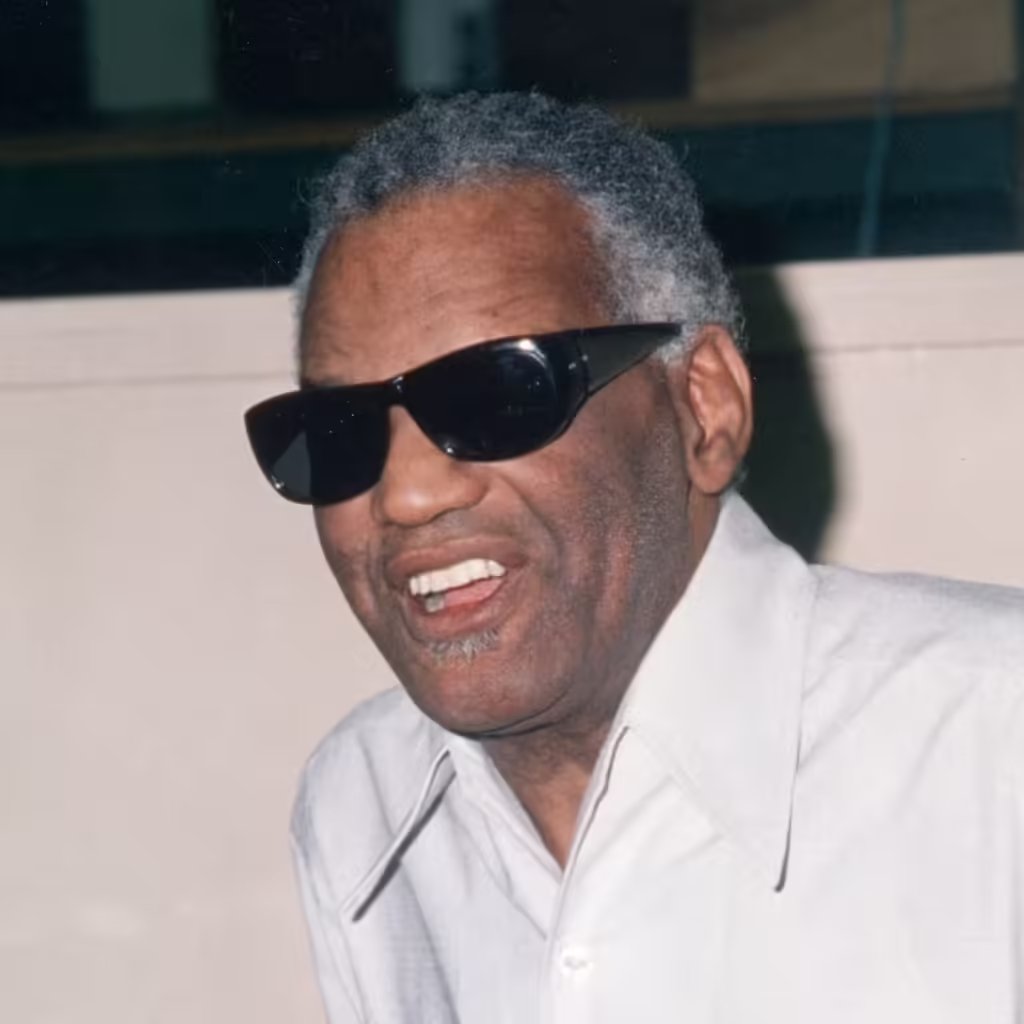
Table of Contents
Ray Charles: The Father of Soul
Ray Charles was a pioneering musician whose innovative blending of blues, gospel, and jazz led to the creation of soul music in the 1950s. Known as the “Father of Soul,” he left an indelible mark on the music industry with hits like “Unchain My Heart,” “Hit the Road Jack,” and “Georgia on My Mind.” His unique ability to cross musical boundaries made him one of the most influential figures in American music. Charles passed away in 2004, leaving behind a legacy that continues to inspire artists today.
Early Life and Education
Born Ray Charles Robinson on September 23, 1930, in Albany, Georgia, Charles faced many challenges early in life. Raised in Greenville, Florida, he suffered the traumatic loss of his younger brother, whom he witnessed drown. Shortly after, Charles began to lose his sight, becoming fully blind by the age of seven. His mother sent him to the Florida School for the Deaf and the Blind, where he learned to read and write music in Braille and mastered several instruments, including the piano, organ, saxophone, and trumpet. His early exposure to a wide range of musical genres, from gospel to country, shaped his versatile sound.
Musical Beginnings and Rise to Fame
At the age of 15, following his mother’s death, Charles began touring the South and eventually developed a heroin addiction. He moved to Seattle at 16, where he formed a lasting friendship with Quincy Jones. During the late 1940s, Charles performed with the McSon Trio, emulating the styles of Nat King Cole and Charles Brown before developing his own distinctive sound. In 1949, he released his first single, “Confession Blues,” which performed well on the R&B charts. By 1953, he had signed with Atlantic Records and celebrated his first major R&B hit, “Mess Around.”
The Genius Emerges
In 1954, Charles achieved a breakthrough with his hit “I Got a Woman,” which reached No. 1 on the R&B charts and marked the emergence of his signature style—a fusion of gospel and rhythm and blues that laid the foundation for soul music. As his career progressed, he embraced jazz and experimented with various musical forms, earning him the nickname “The Genius” for his ability to transcend genres. His crossover success into pop music came with hits like “What’d I Say,” which reached No. 1 on the R&B chart and No. 6 on the pop chart.
Charles won his first Grammy Award in 1960 for “Georgia on My Mind,” followed by another Grammy for “Hit the Road Jack.” His groundbreaking album Modern Sounds in Country and Western Music (1962) demonstrated his versatility, as he reinterpreted country classics with a soulful twist. Despite his creative successes, Charles continued to struggle with heroin addiction, culminating in his arrest in 1965. He later overcame his addiction and avoided jail time.
Later Career and Legacy
Though Charles’s output in the late 1960s and 1970s was less consistent, he remained a revered figure in the music world. He won a Grammy for his rendition of Stevie Wonder’s “Living for the City” and in 1980 made a memorable appearance in the film The Blues Brothers. In 1986, Charles was inducted into the inaugural class of the Rock and Roll Hall of Fame, alongside music legends such as Elvis Presley and James Brown.
Throughout the 1990s, Charles remained in the public eye, performing at high-profile events and appearing in commercials, most notably for Pepsi-Cola. His soulful voice also featured in the charity single “We Are the World” alongside stars like Billy Joel and Bruce Springsteen.
Final Years and Posthumous Honors
In 2003, after 53 years of touring, Charles canceled his performances due to health issues and underwent hip replacement surgery. Soon after, he was diagnosed with liver disease, and he passed away on June 10, 2004, at his home in Beverly Hills, California. Charles recorded more than 60 albums and performed over 10,000 concerts during his career, leaving an enduring legacy in music.
Following his death, fellow musicians, including Quincy Jones, paid tribute to his unparalleled influence. “There will never be another musician who did as much to break down the perceived walls of musical genres,” Jones remarked. Charles’s funeral was attended by over 1,500 mourners, with performances from B.B. King, Willie Nelson, and Stevie Wonder.
Final Album and Film
Two months after his passing, Charles’s final album, Genius Loves Company, was released, featuring duets with various musical admirers. His life was also immortalized on screen with the biographical film Ray (2004), in which Jamie Foxx delivered an award-winning portrayal of the music legend. Foxx’s performance earned him the Academy Award for Best Actor, solidifying Ray Charles’s place not only in music history but also in popular culture.
